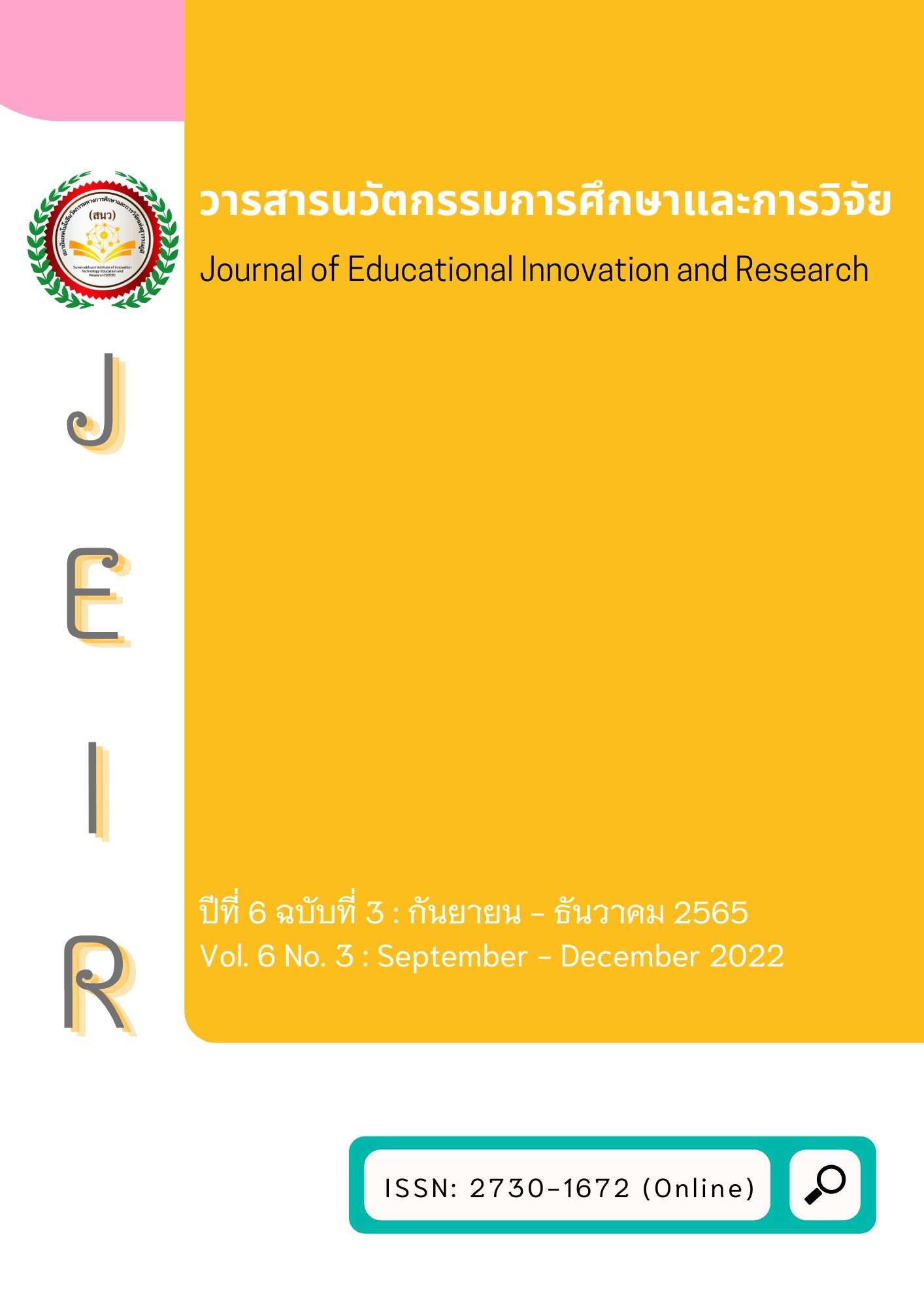Management Strategies for Dance Teachers in Universities: Central China
Main Article Content
บทคัดย่อ
According to the review of the research and development trends of management theory, art management, and dance studies, this paper draws on a combination of theory and empirical research to address management strategies and other issues of college dance teachers in central China.
An empirical analysis and discussion were conducted on the impact of performance and possible solutions. This study analyzed the structure of dance teacher management strategies, compiled questionnaires, and conducted empirical research on the impact of dance teacher management strategies on performance. Moreover, it explored the impact of different dimension management strategies on dance professional teacher satisfaction through empirical research and studying the impact of satisfaction on job performance. Hierarchical regression analysis methods were used to compare variables such as personal information, personality traits, emotional factors, job recruitment, continuing education, performance assessment, salary distribution, promotion, employee supervision, team collaboration, and individual adaptation. The results showed that the above independent variables had a significant impact on job performance, indicating that the above factors were the organizational behavior variables that must be focused on job performance research and actual work. At the end of the thesis, based on the aforementioned investigation and research and data analysis results, some relevant countermeasures and suggestions were given to solve the management problems of dance teachers in colleges.
Article Details

อนุญาตภายใต้เงื่อนไข Creative Commons Attribution-NonCommercial-NoDerivatives 4.0 International License.
เอกสารอ้างอิง
Argyris, C. (1960). Understanding Organizational Behavior. London: Tavistock Publications.
Allen, N. J. , Meyer, & J. P. (1990). The measurement and antecedents of affective, continuance and normative commitment to the organization. Journal of Occupational Psychology, 63 (1),1-18.
Cropanzano, R., Howes, J. C., & Grandey, A. A. (1997). The relationship of organizational politics and support to work behaviors, attitudes, and stress. Journal of Organizational Behavior, 18(2), 159-180.
David G., Lynn G., & Rodger W. (2003). The role of perceived organizational support and supportive human resource practices in the turnover process. Journal of Management, 29(1), 99-118.
Eisenberger, R., Cotterell, N., & Marvel. (1987). J. Reciprocation ideology. Journal of Personality and Social Psychology, 53,743-750.
Eisenberger, R., Huntington. R., Hutchisom, S. and Sowa, D. (1986). Perceived Organizational Support. Journal of Applied Psychology, 71, 500-507.
Eisenberger, R., Stinglhamber, F. & Vandenberghe, C. (2002). Perceived supervisor support: contributions to perceived organizational support and employee retention. Journal of Applied Psychology, 87, 565-573.
George, J. M., and Brief, A. P. (1992). Feeling good-doing good: A conceptual analysis of mood at work-organizational spontaneity relationship. Psychological Bulletin, 112, 310-329.
Heider, F. (1982). The Psychology of Interpersonal Relations. New York: Psychology Press.
Adams, J.S. (1965). Inequity in Social Exchange. Advances in Experimental Social Psychology, 2, 267-299.
Kraimer, M. L, Wayne, S. J, & Jaworski, R. A. (2001). Sources of support and expatriate performance: The mediating role of expatriate adjustment. Personnel Psychology, 54(1), 71-100.
Liden, R. C., Sparrowe, R. T., & Wayne, S. J. (1997). Leader-member exchange theory: The past and potential for the future. In: Rowland, K. M., Ferris, G . R. Eds. Research in Personal and Human Resource Management. Greenwich, CT: JAI Press.
Locke, E. A. (1976). The Nature and Causes of Job Satisfaction. In Dunnette, M. D., Ed., Handbook of Industrial and Organizational Psychology. Chicago, IL: Rand McNally.
Meyer, J. P., and Allen, N. J. (1993). Commitment to Organizations and Occupations: Extension and Test of a Three Component Conceptualization. Journal of Applied Psychology, 78, 538-551.
Meyer, J. P., Allen, & N. J. (1997). Commitment in the workplace: Theory, research, and application. Thousand Oaks, CA: Sage Publications.
Meyer, J. P., Smith, C. A. (2000). HRM practices and organizational commitment: Test of a mediation model. Canadian Journal of Administrative Sciences, 17(4), 319-331.
Staw, B. M., Sutton, R., & Pelled, L. H. (1994). Employee positive emotion and favorable outcomes at the workplace. Organizational Science, 5(1), 51-71.
Vroom, V. H. (1964). Work and Motivation. New York: Wiley.
Witt, L. A. (1992). Exchange ideology as a moderator of the relationships between importance of participation in decision-making and job attitudes. Human Relations, 45, 73-85.


